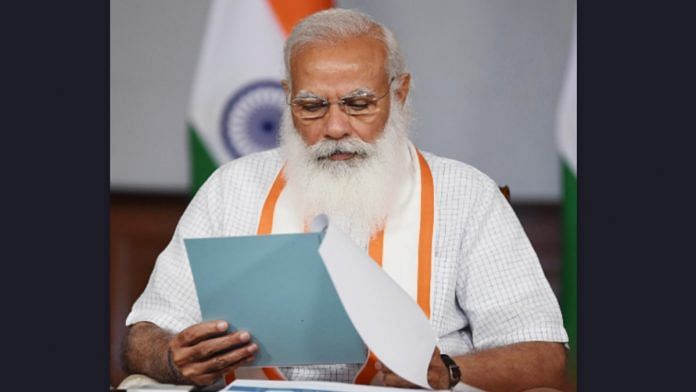
Thank you dear subscribers, we are overwhelmed with your response.
Your Turn is a unique section from ThePrint featuring points of view from its subscribers. If you are a subscriber, have a point of view, please send it to us. If not, do subscribe here: https://theprint.in/
There is a lot of public sentiment against the Modi government in the wake of the second wave of Covid-19 in India. The suffering and loss of life, in particular due to the shortage of oxygen, ventilators and beds that occurred even in major cities and didn’t spare not even upper classes, was absolutely unimaginable. The images and footage in the media, as well as the firsthand accounts and pleas we all heard from relatives and acquaintances, and saw on our social media feeds, really hit home how dire the situation was. In this respect, the second wave evoked a much more visceral response in the public compared to the first wave.
However, I would like to question how much public sentiment has REALLY shifted, and if it may actually result in significant damage to BJP’s electoral results in the next general elections. This is notwithstanding the fact that the elections are in 2024, and public memory is short.
Now, a lot of voting in India, particularly in the rural parts, happens based on caste, religion etc. affiliations. This component will not change, and I don’t intend to factor that. I will focus on the component that is affected by governance. I think the key to understanding this matter lies in the answers to a handful of crucial questions. I believe these same questions play in the minds of the voters, whether they may articulate it in a similar fashion or not.
Question 1: Is there documented evidence of a significant number of experts raising the alarm of a second wave starting, and in particular of a potential oxygen shortage, before these were actually evident on the ground? If not, how would we expect the Modi administration to anticipate and be better prepared.
Layman speak: Arre isme Modi sarkaar kya kar leti. Itna bhayankar wave aayega kisne socha tha
Question 2: Is there evidence of any other state leadership having better foresight, and hence being better prepared? The eventual ground reality, for instance in Delhi, suggests not.
Layman speak: To baaki kisi ne kya kar liya tha?
Question 3: Is there any credible reasoning that suggests that any other leadership at the center would have done better? For instance, is there evidence to the perception that the Modi govt. was busy in Bengal elections till the end of April, and there was a significant delay in response?
Layman speak: Arre to koi aur kya kuch behtar kar paata?
Question 4: No doubt the key to mitigating the severity of the second wave lied not in the immediate response, but in being better prepared in the months before it even started. Do we have examples of the Modi govt bungling up such preparedness, where one can credibly claim that another leadership would have done better?
Layman speak: (Again) Arre to koi aur kya kuch behtar kar paata?
I believe that even though there is discontent amongst a good number of people on the Modi govt. response, these questions lie at the heart of why he will get a pass, although it may be grudgingly, from his followers. Unless there are pointed, convincing answers to these questions, the media writing endless articles about how bad the response was will have no effect. This is because people believe thatneither Modi, nor anyone else, could have done much better. They believe the brutality of the second wave was a force of nature and will leave it at that.
Also read: SubscriberWrites: ‘Democracy 2.0’ — A new definition of democracy is needed in changing times
These pieces are being published as they have been received – they have not been edited/fact-checked by ThePrint.

COMMENTS